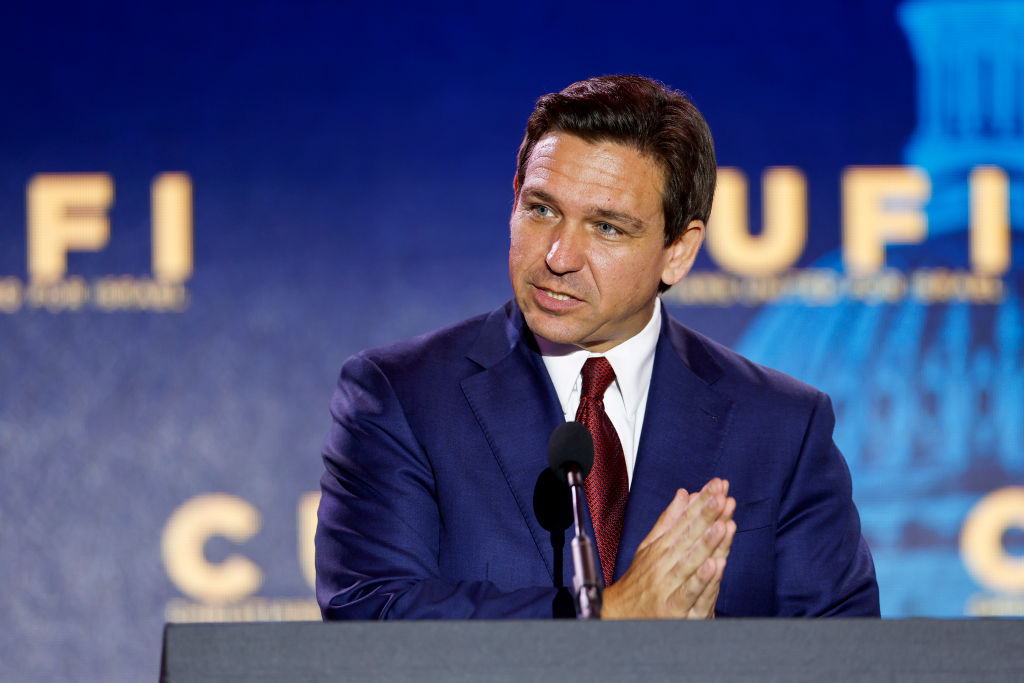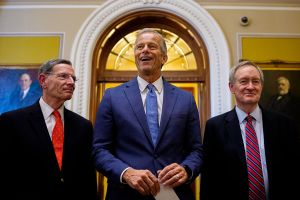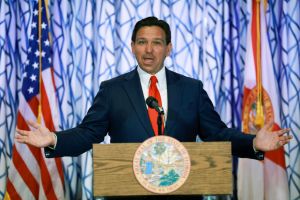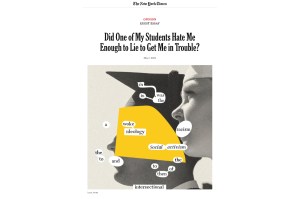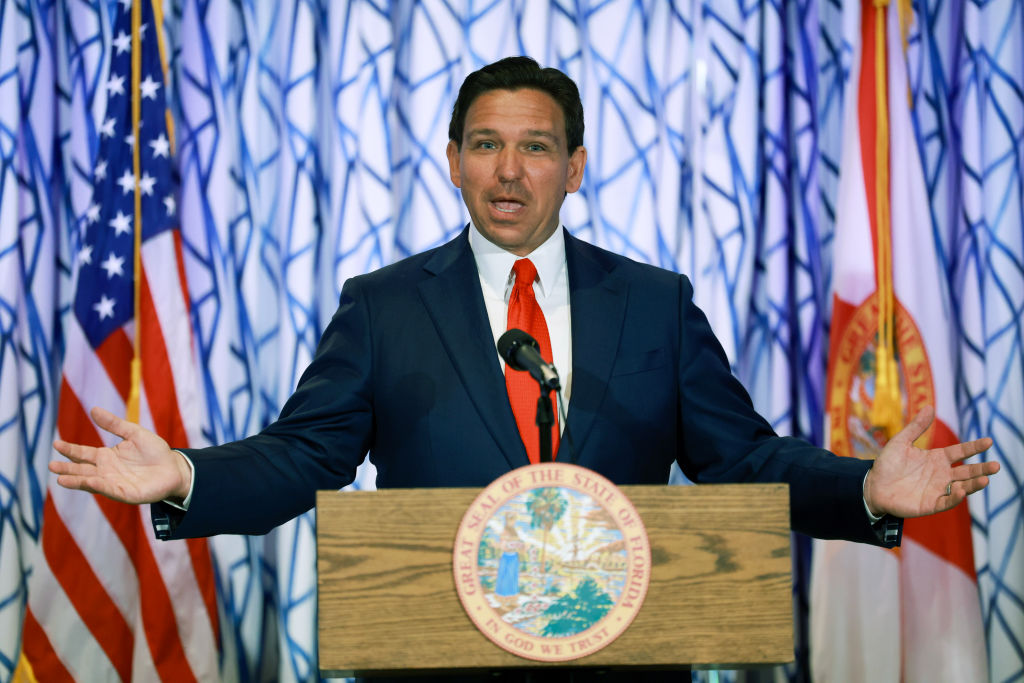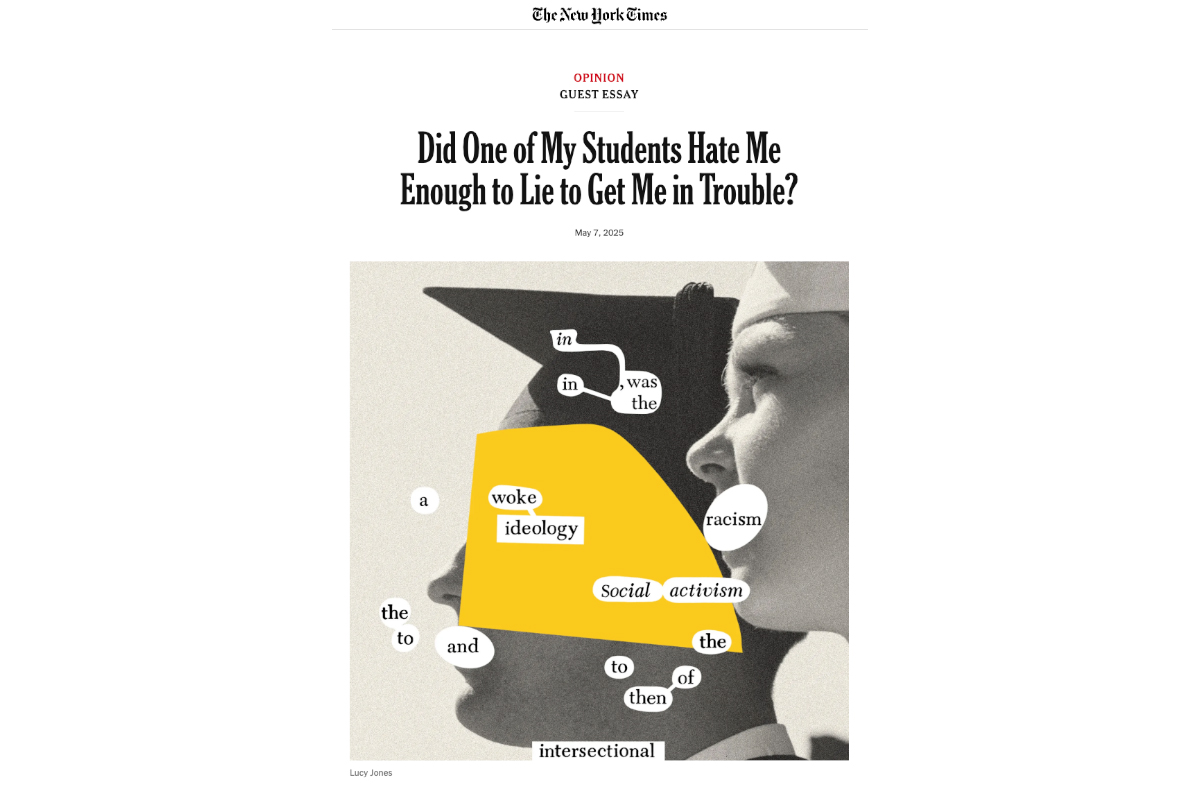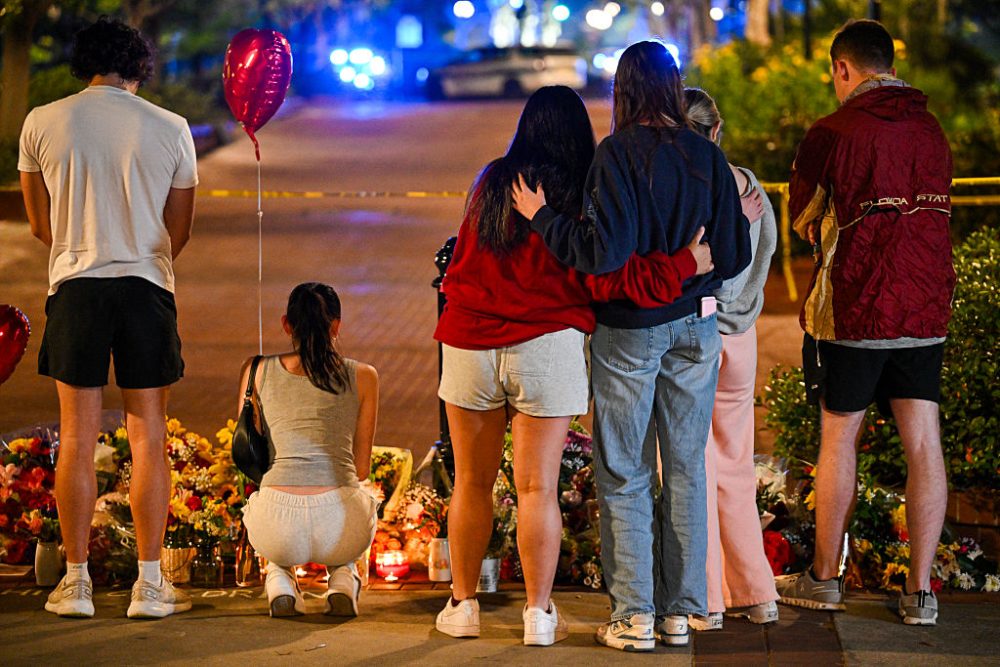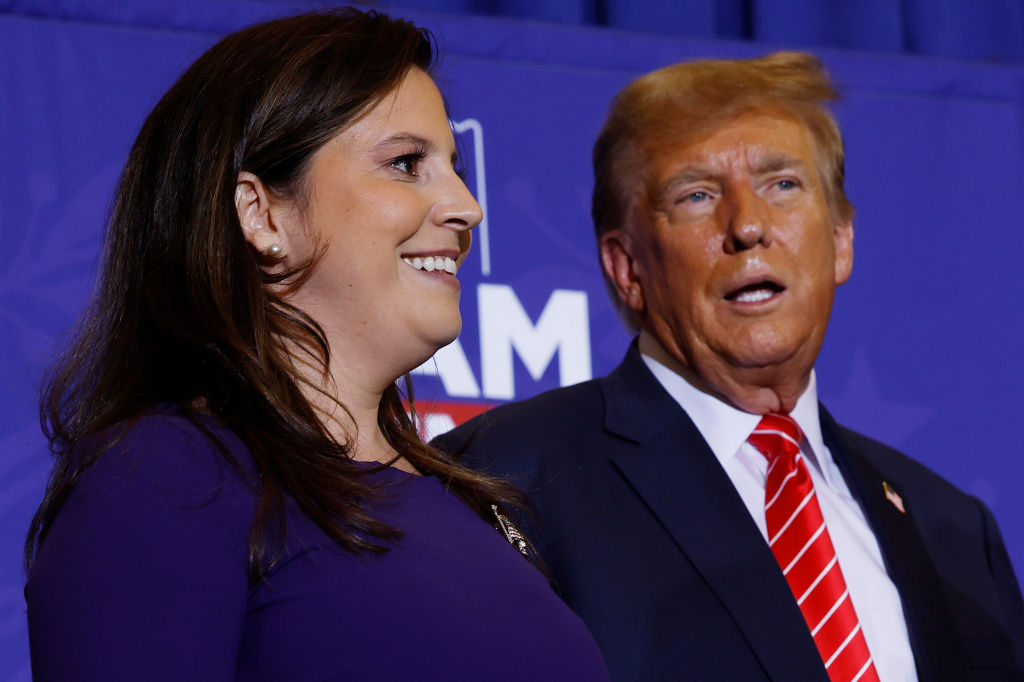Welcome to Thunderdome! We are a month away from the first presidential debate, and the big news this week was that Mike Pence is dead. Not legally or physically mind you, and certainly not spiritually, where he’s probably the only living politician ensured of a spot in the heavenly choir, but electorally? The former vice president’s fundraising and donor numbers are so low, he may not even make that first debate… and Doug Burgum will! Listen to the podcast, and stick around to hear why No Labels could actually matter…
Reset Ron
“All men who run for presidency of the United States are amateurs,” Theodore H. White wrote sixty years ago. “There is no way of becoming a professional at it, and all of them, win or lose, are forever altered in spirit of character by the ordeal.”
It’s important to remember this, because it’s such an easily forgotten aspect of the task. Time and time again we’ve seen accomplished governors and senators touted as potential presidents. Then you take to the road and before long find yourself horking down a corndog in August in Des Moines, as some grinning stringer from CNN.com takes multiple pictures of that rebellious squirt of mustard staining the front of your still-creased short-sleeved camp shirt bought by a harried aide that morning from Duluth Trading Company (because your standard Charles Tyrwhitt button-down was deemed too hifalutin), peering into a prairie sun that somehow seems hotter than it has ever been before or since, bitter with the knowledge that every man around you has by now had a beer or three chilled to a perfect 27 degrees from Steer ’N’ Stein and you cannot under any circumstances join in to wash that baking powder and lard aftertaste from your mouth, because while you are supposed to be a politician everyone wants to have a beer with, the aides tell you that three of the last four presidents were teetotalers, so the analytics dictate no suds for you.
What I mean to say is that running for president is hard, very hard, and even a successful governor, politically and policy-wise, such as Florida King Ron DeSantis does not necessarily equip you for the task at hand. DeSantis had a so-so week: his campaign fired a number of staffers — reportedly for cash crunch reasons, sending them to the Super PAC side — but he put in solid performances in Iowa’s Family Leader festivities as the closing act across from Tucker Carlson, and his interview with Jake Tapper on CNN showed just how strong he is at defending his views and policy stances. Polls continue to show him as the only candidate in double digits across from Donald Trump — the latest UNH poll has them at twenty-three and thirty-seven points, respectively (with a strong six points for Doug Burgum!) — and he’s clearly the one with the most resources to take on the former president.
But DeSantis is in a difficult position thanks to the other candidates in the race. In the Tapper conversation, he slipped into the mode of analysis that sounds more like a staffer: “I’m the only veteran running, I’ll be the first president elected since 1988 that served in a war. There’s very few states in this country with a stronger active duty military presence and veteran presence than here. We’ve also got great support in the up-country in South Carolina that we’re building. And of course, my wife went to College of Charleston, so we know the Low Country well… And the way the calendar’s working out, you’re going to have New Hampshire in late January and then here in late February. We’re going to be spending a lot of time in South Carolina.”
This is all accurate analysis. But it leaves out the GOP’s Three Stooges problem: the fact there are not one but two prominent South Carolina politicians in the race in Nikki Haley and Tim Scott — and their resources, while far less than DeSantis’s, look to be enough to keep them in the race until South Carolina votes. If both stay in, his path to victory looks much harder — and the momentum for anyone who wins South Carolina on February 24 will translate into the March 5 Super Tuesday elections that will decide the whole thing.
Former Wisconsin governor Scott Walker, who experienced similar struggles when he tried to jump to the national stage, weighed in this week with the advice to “go lean and go bold,” whatever that means. It’s hard to fix a plane while you’re flying. And somewhere, that Iowa corndog with your name on it is waiting to ruin your day.
Tucker’s rare opportunity to slice and dice
I wrote about the Iowa Family Leader show from Friday last week, but it’s worth noting the outsized effect that Tucker Carlson’s absence from the Fox News primetime lineup is having on this race (caveat that I am a Fox News contributor — subscribe to my podcast there, where my most recent conversation is with another governor who failed to launch, Texas’s Rick Perry). Carlson took the opportunity to ask nearly every candidate present about the war in Ukraine, in ways that put nearly everyone on their back heels.
I say nearly because, surprisingly enough, the one person he didn’t ask about the issue was former UN ambassador Nikki Haley, an odd choice to say the least. But the whole thing served as a reminder that Tucker’s absence from the daily fray is having an impact on this primary. The issues he cares about are not being elevated consistently by other interviewers, and in practical terms, that means Ukraine remains a low-tier issue for Republicans, not something that candidates are having to speak to on a regular basis.
What’s more, it appears that on foreign policy, voters are just not with Tucker on Ukraine and NATO. A RealClearOpinion survey, conducted by Emerson, found this week that more than 77 percent of voters polled say NATO remains essential to US security, more than 68 percent support Sweden joining NATO and more than 54 percent support Ukraine joining NATO, even when reminded of Article 5’s defense obligations. While Republicans are less supportive of these new additions than Democrats, the percentages opposed are still a much smaller portion of the party. Without a voice of Tucker’s prominence pushing those views to a rapt audience, these perspectives are unlikely to change.
The No Labels tease
It may very well turn out that this election could pit two of the least popular presidents against each other, and you’d think that would bode well for No Labels, the movement to run a Democratic/Republican unity ticket that threads the needle to get to the White House. Joe Lieberman this week stressed that such a move would be made not in favor of one candidate over another, despite the fact that it’s clearly Democrats who are more concerned about the prospects — and Karl Rove thinks they should be:
Consider 2020’s three closest states. Mr. Trump lost Arizona by 0.31 percent of the total vote while Republican congressional candidates prevailed by a collective 0.28 percent, a 0.59 point better than his margin. Mr. Trump lost Georgia by 0.24 percent while GOP congressional candidates won by 2 percent, a swing of 2.24 points. He lost Wisconsin by 0.63 percent while GOP congressional candidates won by 2.93 percent, running 3.56 points better than the former president. If Mr. Biden had failed to sway Republican-leaning ticket splitters and received the same percentage in these states as Democratic US House candidates, he would have lost all three states and the election. A No Labels ticket with a Reagan-style Republican on it might grab enough of these right-leaning swing voters to move close states like these out of the Democratic column.
What people often leave out of their analysis is understanding that it’s not just who a significant third-party candidate takes votes from, it’s where they take them. So a No Labels candidacy as a hypothetical is very difficult to analyze — someone has to actually be on the ticket, and there’s a big difference if the top guy is Jon Huntsman or Joe Manchin.
One more thing
Popular New Hampshire Governor Chris Sununu announced this week that he’s not running for re-election. This frees him up to be a kingmaker in 2024, to the extent that’s possible in his key state. Sununu was someone who many teased as a potential candidate for the presidential nomination this time around, along with Maryland’s Larry Hogan, as a potential candidate of the John Kasich 2016 ilk. This was always a little unfair to Sununu, who’s been pretty conservative in his tenure. One person who might end up in that lane, now that he seems headed for the debate stage? Doug Burgum, as yet an unknown to most Americans. But he bought a ticket and now he’s in the big show — so we’ll see if Burgumentum is real soon enough.



